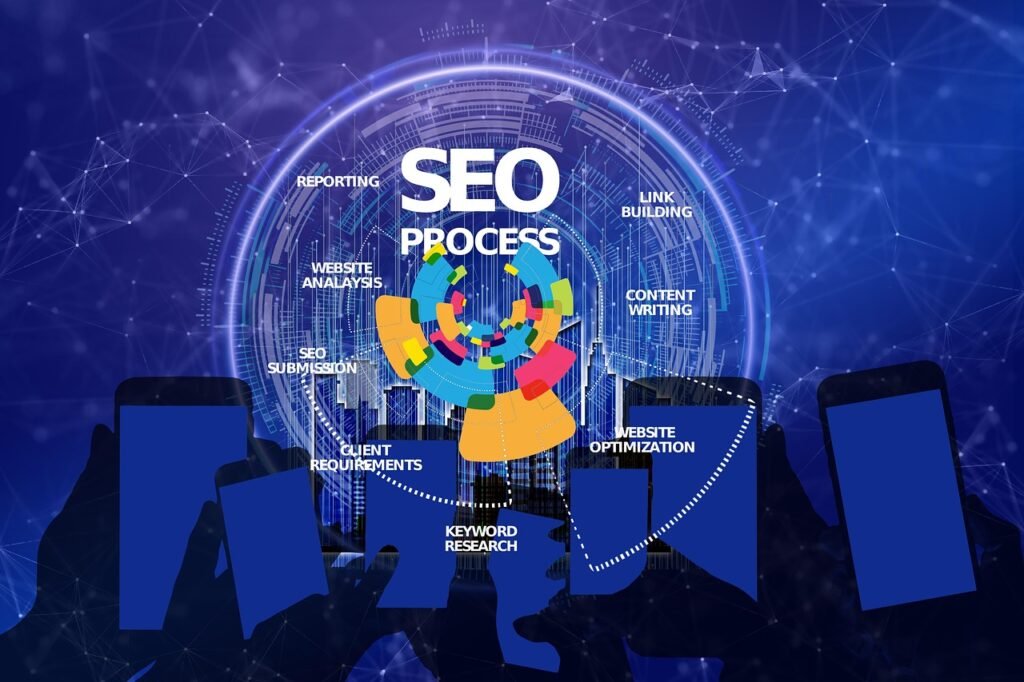What Is SEO and Why Should I Care?
A Plainspoken Guide for Small Businesses and Nonprofits
Your website is often the first place people meet you. But having a site alone isn’t enough. If search engines don’t understand it, the people you want to reach may never find you.
That’s where SEO — search engine optimization — comes in.
At its core, SEO is the practice of making your website clear and trustworthy in the eyes of search engines. It’s not about chasing hacks, tricking algorithms, or obsessing over every tiny ranking factor. It’s about giving search engines the right signals so they can confidently recommend your site to the people who need you most.
This guide will walk you through what SEO is, why it matters, and how you can start building it into your work — even if you don’t think of yourself as “technical.”

What SEO Actually Is
Search engines like Google are designed to do one thing: connect people with the most helpful results for their search.
Every time someone types a question into Google, the search engine scans billions of pages in a fraction of a second and chooses the results it believes will be the most useful.
SEO is the process of making sure your website is one of those useful results.
It does this by aligning your site with the signals search engines look for, including:
- Keywords → the words and phrases people type into Google.
- Metadata → the titles and descriptions that appear in search results.
- Site speed and structure → how quickly your pages load and how easy they are to navigate.
- Internal links → how your pages connect to each other.
- Backlinks → when other sites link back to yours, signaling authority.
- Mobile-friendliness → how well your site works on a phone.
- Content quality → whether your writing actually answers the question people had when they searched.
Think of SEO as translation. You already know what you do and who you serve. SEO translates that into a language search engines can understand and trust.
Why SEO Matters for Small Businesses and Nonprofits
If your site isn’t showing up in search results, you’re effectively invisible. Most people never go past the first page of Google — and many don’t even scroll past the top three results.
For a small business or nonprofit, this invisibility can mean:
- Fewer sales or donations.
- Less community reach.
- Fewer opportunities for growth.
On the flip side, strong SEO gives you:
- Visibility where it counts → Meeting people in the exact moment they’re searching for your product, service, or cause.
- Credibility → Higher-ranking sites automatically feel more trustworthy to users.
- Budget efficiency → Unlike ads, which stop working when you stop paying, SEO builds long-term value.
- Connection beyond your circle → Word-of-mouth is powerful, but SEO introduces you to people who never would have heard about you otherwise.
For small organizations working on tight budgets, SEO can be the most cost-effective marketing tool you’ll ever use.
Common Myths About SEO
Because SEO has been around for decades, there are plenty of myths that confuse people. Let’s clear up a few:
- Myth 1: SEO is all about keywords.
Keywords matter, but modern SEO is more about relevance, intent, and quality content. - Myth 2: SEO is too technical for non-developers.
Yes, there are technical aspects. But much of SEO is about clarity and good communication — skills you already use. - Myth 3: SEO is a one-time project.
SEO is ongoing. Search engines change, your audience’s needs change, and your site evolves. - Myth 4: SEO brings instant results.
SEO takes time — weeks or months, not days. But the payoff is steady and long-lasting. - Myth 5: SEO is manipulative.
Done well, SEO isn’t about gaming the system. It’s about making your content discoverable to the people who actually want it.
What SEO Looks Like in Practice
It’s easy to talk about SEO in abstract terms. But what does it actually look like day to day?
Here are some practical examples:
- Updating your page titles and meta descriptions so they clearly describe each page.
- Writing blog posts that answer questions your audience is already asking.
- Adding internal links so your content flows naturally between pages.
- Optimizing images with descriptive alt text so both humans and search engines know what they represent.
- Making sure your site is secure (HTTPS) and loads quickly on mobile.
- Using headings (H1, H2, H3) to organize your content so it’s easier to read.
These aren’t abstract SEO “tricks” — they’re small, practical steps that make your site easier for humans to use and easier for search engines to understand.
The Three Main Pillars of SEO
SEO is often broken into three categories:
- On-Page SEO → Everything on your site you can directly control (content, keywords, metadata, headings, images).
- Off-Page SEO → Signals from other sites (backlinks, reviews, mentions on social media).
- Technical SEO → The behind-the-scenes setup that makes your site easy for search engines to crawl and index (site speed, mobile-friendliness, sitemaps, structured data).
Strong SEO requires some of all three. You don’t need to master them overnight, but knowing these categories helps you see the bigger picture.
What is SEO for Small Businesses?
Small businesses often think they can’t compete with big companies in search. The truth is, you don’t have to.
Your advantage is local SEO: showing up for people in your area who are ready to buy.
Examples of local SEO tactics:
- Claiming and optimizing your Google Business Profile.
- Adding your city or region to your key pages (e.g., “Atlanta SEO support for nonprofits”).
- Collecting reviews from real customers.
- Making sure your contact info is consistent everywhere online.
With these steps, you can outrank national competitors for searches that matter in your community.
What is SEO for Nonprofits?
Nonprofits often underestimate the power of SEO, but it can be a game changer:
- Raising awareness → People search for causes, solutions, and help. Your site can meet them there.
- Building credibility → Ranking high makes your organization look established, even if you’re small.
- Supporting fundraising → Donors often research organizations before giving. A well-optimized site makes you easier to find and trust.
- Reaching volunteers → Many people search “volunteer opportunities near me.” Local SEO ensures you show up.
In other words, SEO helps your mission reach further than your mailing list or your neighborhood.
Where to Start If You’re New
If you’re feeling overwhelmed, here’s a manageable place to begin:
- Set up Google Search Console. It’s free, and it shows you what people are searching when they find your site.
- Pick one or two keywords per page. Focus on clarity, not stuffing.
- Write human-centered titles and descriptions. They should make sense to a person, not just to Google.
- Add internal links. If you mention a service, link to your Services page.
- Check your site speed. Google’s PageSpeed Insights tool will show you what to fix.
- Create content regularly. Even short, useful blog posts help keep your site fresh.
Consistency matters more than perfection.
Measuring Success
How do you know if your SEO is working? Look for:
- Search impressions → How often your site shows up in results.
- Clicks → How many people are visiting from search.
- Ranking improvements → Are you moving up for your target keywords?
- Engagement → Are visitors staying on your site and clicking around?
These metrics tell you if your work is paying off.
The Long Game
SEO isn’t a quick fix. It’s a long-term strategy that grows with time and effort. But that’s its strength. Unlike ads, which disappear when you stop paying, SEO keeps working for you months or even years after the work is done.
By investing in SEO now, you’re laying a foundation that supports your visibility, credibility, and growth far into the future.
You’ve already invested your heart and energy into your work. SEO ensures that effort doesn’t go unnoticed.
Final Thoughts
SEO doesn’t need to be intimidating. At its heart, it’s about clarity: helping search engines see who you are so they can connect you with the people looking for exactly that.
Whether you’re running a small business or a nonprofit, SEO gives you the power to show up, be seen, and grow without burning through your budget.



Ready to put SEO to work for your business or nonprofit? At Wildfire Digital Strategy, we help you cut through the noise, refine what you already have, and build a site that search engines — and people — can find and trust. Explore what we offer or get in touch with us to start building your visibility today.


